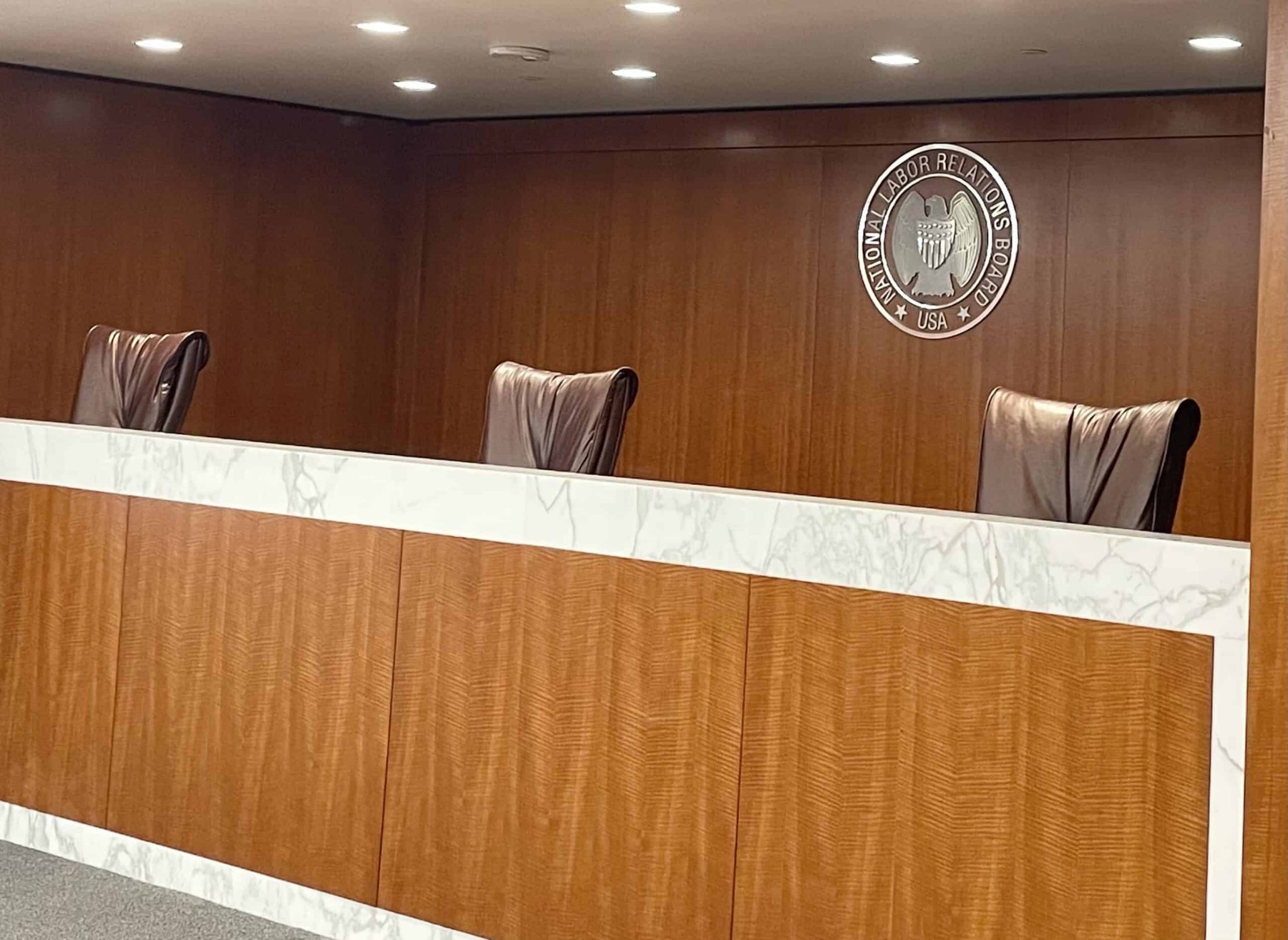
Swap Agrawal is a student at Harvard Law School.
In this weekend’s news and commentary, NLRB staff advocate for increased agency funding from Congress, and an NLRB motion argues that Amazon is violating a recent Section 10(j) injunction.
On December 1, the National Labor Relations Board Union announced a rally at NLRB headquarters in support of staff facing increased caseloads and imminent furloughs. Also on December 1, Karen Cook, the president of the NLRB Professional Association – a separate union of 122 staff attorneys and FOIA specialists at the agency – sent a letter to Congress asking for greater appropriations. “We work on 10-year-old computers with limited legal research tools and outdated electronic case management systems,” wrote Cook. “Ironically, the proposed raise for federal employees, although well-deserved, is no boon to employees of the NLRB. Having already made cuts in spending, the agency has no room to absorb payment of the increase without an increased appropriation. I know of no other federal agency that will be forced to furlough employees in order to raise pay, and no other federal employees whose cost-of-living increases will be clawed back in the form of unpaid, forced furloughs. In these circumstances, we are left to wonder what rational, prospective public servant would sign up for a career defending NLRA rights when Congress has made clear that those civil servants are so disfavored.” Advocacy by staff comes several days after co-chairs of the Congressional Labor Caucus urged House Speaker Nancy Pelosi (D-CA) and Senate Majority Leader Chuck Shumer (D-NY) to appropriate additional funds to the NRLB during the lame duck session before Democrats lose control of the House.
On November 30, the NLRB filed a motion in the Eastern District of New York asking the court to clarify an order against Amazon. On November 18, District Judge Diane Gujurati issued a Section 10(j) injunction against Amazon requiring the company to cease and desist from retaliating against employees for union organizing. The decision also directed Amazon to post, distribute, and read the cease-and-desist order to employee’s at JFK8, a Staten Island facility that voted to unionize earlier this year. According to the NLRB’s recent motion, Amazon “made a mockery” this order by planning to show workers a video regarding the order during shift change. However, the order’s language required Amazon to post the order “where [Amazon] customarily posts notices to its employees” and read the order at a meeting “held during working hours” and “scheduled to ensure the widest possible employee attendance.” On December 1, an Amazon spokesperson told Axios that the employer read the order out loud during a meeting. However, emails from Amazon lawyers state that the company is “not inclined to reconsider” where it will be posting notices. This ongoing battle highlights Section 10(j) of the National Labor Relations Act, a tool the NLRB relies upon to prevent employers from interfering with organizing campaigns.






Daily News & Commentary
Start your day with our roundup of the latest labor developments. See all
January 5
Minor league hockey players strike and win new deal; Hochul endorses no tax on tips; Trump administration drops appeal concerning layoffs.
December 22
Worker-friendly legislation enacted in New York; UW Professor wins free speech case; Trucking company ordered to pay $23 million to Teamsters.
December 21
Argentine unions march against labor law reform; WNBA players vote to authorize a strike; and the NLRB prepares to clear its backlog.
December 19
Labor law professors file an amici curiae and the NLRB regains quorum.
December 18
New Jersey adopts disparate impact rules; Teamsters oppose railroad merger; court pauses more shutdown layoffs.
December 17
The TSA suspends a labor union representing 47,000 officers for a second time; the Trump administration seeks to recruit over 1,000 artificial intelligence experts to the federal workforce; and the New York Times reports on the tumultuous changes that U.S. labor relations has seen over the past year.